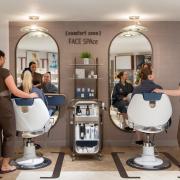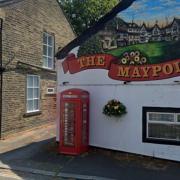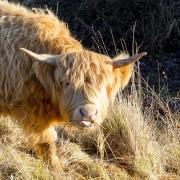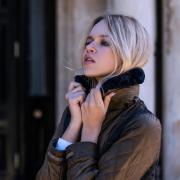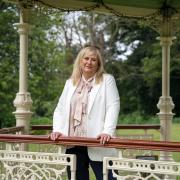Damp earth, blood, stones and milk – they’re all in a days work for a York ‘sniffologist’

As a child, Nicola Thomis could tell one newspaper from another by its smell. In fact, she could sniff out a whole host of fragrances the average nostril-twitcher wouldn’t even register.
‘I didn’t realise I was particularly sensitive to scents until I discovered my love of perfume – then it made more sense,’ she said. ‘As a child, I could tell the different brands of newspaper apart by their smell, but I honestly didn’t really think much about it.’
It turns out that she has a relatively rare form of synaesthesia which means she sees colours when she smells certain things – a condition shared by novelist Joanne Harris, which she talked about in a recent Yorkshire Life interview.
‘Certain perfumes are really vivid colours for me,’ Nicola explains. ‘For example, one scent I reviewed is supposed to smell like the jungles, so you’d imagine it would smell green but, for me, it smells of pinks and purples and browns.
‘I didn’t realise I had this condition until I interviewed an experimental psychologist for a podcast I am putting together on perfumes and scent. I thought this was just something that happened to everyone as I’d never really questioned it.’
In ‘real life’, she’s digital communications officer for the Growth Hub at the Local Enterprise Partnership in York (she must have enormous business cards), but in her spare time Nicola is a successful perfume blogger. Her review site, The Sniff, was recently recognised by the Fragrance Foundation’s Jasmine Awards, set up in France 30 years ago to recognise and reward journalists and visualisers (no, we’re not sure what they are either) who translate the complex art of perfumery into words and pictures.
So, how do you become a perfume blogger?
‘From being really small, I always loved writing,’ said Nicola. ‘I remember when we were asked to write stories at school mine were always pages and pages longer than everyone else’s. I’ve written novels in my spare time but once you’re in a 9-5 it’s hard to find the discipline and energy to keep writing. Starting a blog was a way to give myself a weekly deadline to get a piece out there into the world.’
She struggled to find a new perfume on the high street that seemed right for her, so she started to look around at what else was available, stumbling on smaller, more interesting brands on the internet and then, finally, ending up at Bloom Perfumery in London.
‘They have a vast selection of niche scents,’ said Nicola. ‘From then on, I was a lost cause, falling down the rabbit hole of perfumes and just being more and more particular about what I liked and would wear.’
She started to read and research extensively, spritzing herself with as many perfumes as her bank manager would sanction.
‘Now, when I go abroad, I search out perfume boutiques to see what brands they sell and what catches my attention,’ she said. ‘I’ve been to perfume shops all over Europe and have met some really lovely, passionate people.’
Many of the most successful perfume bloggers are men, and most write about big-name brands. But Nicola concentrates on the niche end of the market.
‘One of the main drivers for me was making high-end perfume unintimidating,’ she explained. ‘I want to write about scent in a way that’s understandable, accessible and imaginative, so people feel empowered to try brands and fragrances they haven’t tried before. In the rest of Europe, it’s much more acceptable to wear interesting scents and I’d like to bring a little of that culture back here.’
Among her favourites are Bat by Zoologist, which smells of damp earth, root vegetables, over-ripe fruits and stones (‘basically, it smells like a crypt at harvest festival’) and Secretions Magnifiques by Etat Libre d’Orange, one of the most famous niche scents with accords of blood, milk and iodine.
‘It’s very weird – many people consider it unwearable – but it is a representation of perfume as art,’ said Nicola. ‘It’s very provocative and extremely interesting. Not your average scent at all.’
If you want to find your own signature scent, she advises throwing out the rule book. Don’t fence yourself in as someone who only wears ‘florals’ or ‘citruses’; go with something that makes you feel good. And shop by yourself so you won’t be swayed by someone else’s opinion.
‘I always test a perfume on my skin a minimum of three times before I buy it. Sure, you might get lucky with a blind buy, but chances are you won’t love it. And if you can’t afford a full bottle, there are many subscription services online that decant bottles into smaller sizes.’
Nicola is currently working on a number of exciting collaborations with photographers, exploring different ways of visualising the art of perfumery, and is putting together a podcast aimed at enlightening the masses about great fragrances.
‘I’d like to make the UK a better smelling place,’ she said. ‘I want to help people feel confident and uplifted by their choice of scent. Perfume brings me a lot of joy – it’s only fair that I share that joy with others if I can.’








